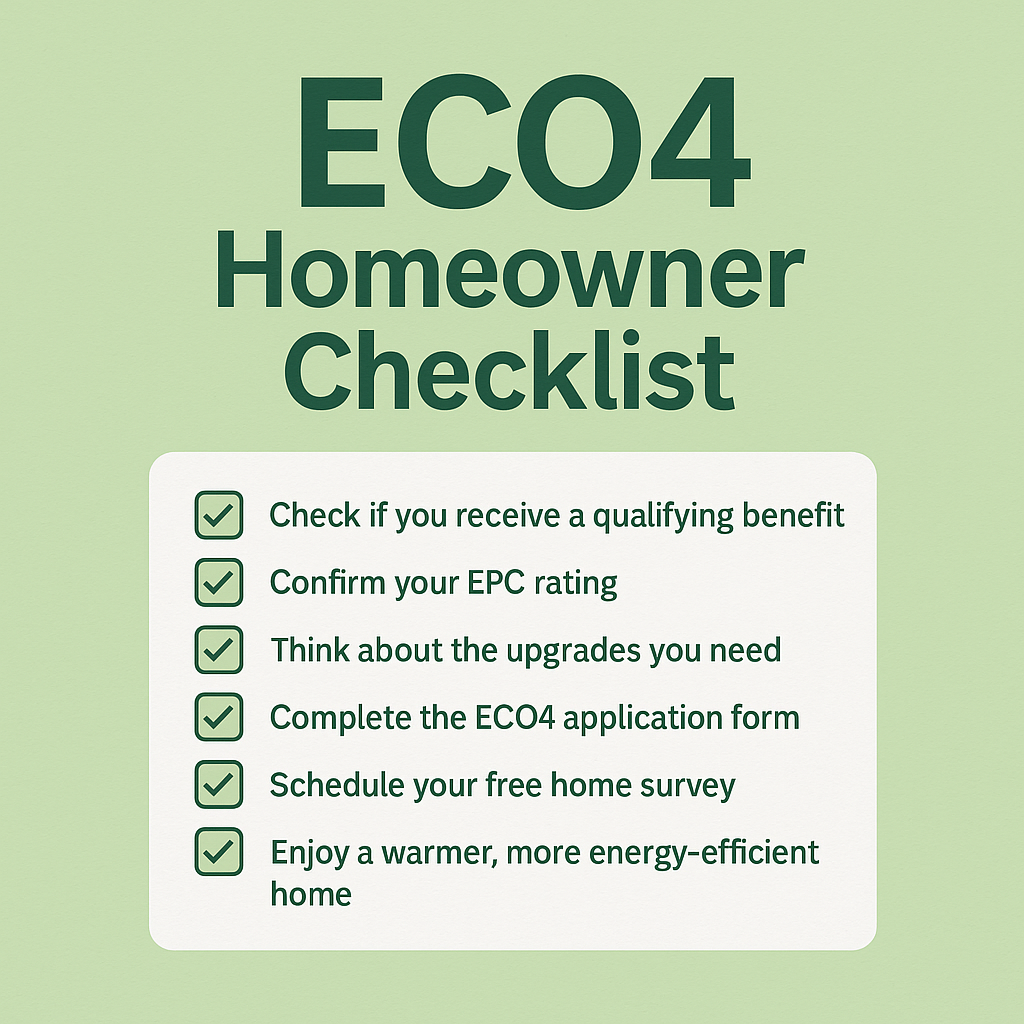As we continue to live through the current climate crisis, we’re all becoming more aware of how our everyday actions can affect the planet. Daily decisions such as when we use our cars, how we dispose of our waste and what food we consume can all influence how environmentally friendly we’re being.
Ultimately one of the most important factors that affects our individual and collective carbon footprint is how we use energy in our homes. Gas, electric and water supplies are some of the main ways we use energy on a daily basis, where these levels of consumption need to be managed carefully to help limit carbon emissions and safeguard dwindling finite resources.
Read on to learn more about how home heating upgrades can improve your carbon footprint, where you can also gain numerous financial benefits from improving the energy efficiency of your property.

What Is A Carbon Footprint?
A carbon footprint measures the quantity of greenhouse gas emissions produced by a specific individual, company or organisation. For individuals, this means all activities that use fossil fuels at some point during their production or consumption are taken into account. When companies speak of reducing their carbon footprint, this means taking a look at their entire operational system, while for individuals this could mean making small personal changes to become more environmentally conscious.
How Does Domestic Energy Usage Affect The Environment?
Energy that is sourced from fossil fuels releases harmful greenhouse gases during its production, which contribute to global warming. For the generation of electricity, fossil fuels are combusted in order to power steam turbines, converting kinetic energy to electrical energy. When fossil fuels burn or combust, they release gases such as carbon dioxide. These gases trap heat in the Earth’s atmosphere, which is then released back towards the planet’s surface. This is known as the greenhouse effect, and has led to a global increase in temperatures.
A temperature increase of just one or two degrees can result in widespread environmental disaster, including the melting of ice caps, the rising of sea levels and a change in species migration. In turn this can result in flooding, habitat loss and a reduction in biodiversity, whilst rising temperatures and resulting extreme weather events also make daily life more difficult for the human population.
Renewable Energy Alternatives
As a result of the problems caused by non-renewable energies, more countries are beginning to switch in part or entirely to sustainable energy sources. According to the National Grid, 2020 was the first year in the UK where electricity predominantly came from renewable sources, with 43% of power garnered from a combination of wind, solar, hydroelectric and bioenergy sources. These power sources do not depend on fossil fuels, and so can produce energy without producing extensive amounts of carbon dioxide.
Eco-Friendly Heating Upgrades For Your Home
To help safeguard the planet and reduce your own carbon footprint, you may wish to look at environmentally friendly heating upgrades for your property. In general, we all benefit if the energy we use from the National Grid comes from renewable sources, but further technologies installed in individual homes can also help to manage nationwide carbon emissions. Some green technologies to consider may include:
Solar Panels
Solar panels can be installed on the roof of your home or outdoor building, where they convert the sun’s energy into electricity. These panels are made out of photovoltaic cells, which are designed to absorb energy from the sun. This energy in turn creates electrical charges within the cell, producing a flow of usable electricity.
The energy produced by your solar panels can be used to power your home, meaning you pay less for electricity from your energy supplier. If you generate more electricity than you can use in your property, it can then be sold back to the National Grid to supplement UK-wide energy usage, where you will typically receive a financial reward for your contribution.
Energy Saving Bulbs
Another great way to upgrade your home energy usage and reduce your carbon footprint is to opt for energy saving bulbs. Compact fluorescent lamps (CFLs) are the original low energy bulb, designed to last longer and use less electricity than conventional halogen options. More recently, light emitting diodes or LED bulbs have become the more popular option, where these are the most effective choice for conserving energy usage whilst achieving the same brightness.
Air Source Heat Pumps
Air source heat pumps are designed to extract heat from outside air and increase its temperature using a compressor. This is then transferred to various home heating systems within your property. These come in various types, where an air-to-water pump is designed to funnel heat into a wet central heating system. An air-to-air pump works by feeding heated air into your home via fans. This is an energy efficient way to heat your home compared to a traditional gas boiler, where it can produce more heat whilst using less electricity. Keeping your electricity usage levels low helps to manage your carbon footprint whilst also reducing energy costs.
Smart Controls
A smart control system allows you to manage your energy usage through a smartphone app, accessible on any portable device. This means that you can adjust your appliances, lights and thermostats from anywhere, facilitating more precise energy usage habits. In turn this can help to manage your carbon footprint through a reduction in energy consumption, which will also help to save you money on your energy bills in the long run.
Additional Heating Upgrades
The above technologies are designed with environmental benefits in mind, but you can also save money on your bills and cut your carbon footprint through more traditional heating upgrades. These could include:
Storage Heaters
A storage heater works by storing cheaper off-peak electricity overnight which can then be released throughout the day. They work through the heating up of a ceramic or clay block inside the heater, where this warmth can be gradually released when you need it. In addition to providing low cost heating, storage heaters are also beneficial for the environment and for reducing your carbon footprint, as they tend to release less emissions than a typical gas boiler.
New Boiler
You may find that your home is running on an old and outdated boiler system, where this could be causing a spike in your energy bills. New boilers tend to be more energy efficient, where most hold an energy rating of A which means they operate at around 90% efficiency. A new boiler may include a heat recovery system designed to recapture and reuse waste energy, helping you to use less energy overall. This means lower bills and a reduced carbon footprint overall.
Insulation
Insulating your home is another excellent way to make your property more energy efficient. In general, insulation works by trapping air within its material, helping to slow both conductive and convective heat flow. This keeps your home warmer for longer, whilst allowing you to heat your home using less energy. Insulation comes in various forms, such as loft insulation, which can prevent heat from escaping through your roof. Cavity wall insulation and solid wall insulation both help your external walls to retain heat, where this heat retention helps you to reduce your personal carbon footprint by cutting down on your energy usage.
UK Energy Management: Funded Heating Upgrades For Your Home
At UK Energy Management, we can help you to access government-backed ECO4 funding, a grant system designed to equip your home with energy saving heating upgrades. Simply check your eligibility online with our 60 second form, where we will be able to let you know if you qualify for a grant. Our team will then be in touch to book a home survey and installation date in order to get your heating upgrades up and running.
We can provide a range of green technologies to help manage your carbon footprint and your energy costs, including solar panel installations, smart controls and air source heat pumps. You can also qualify for a range of insulation upgrades or a brand new boiler. Contact us today to find out more about how we can help.



